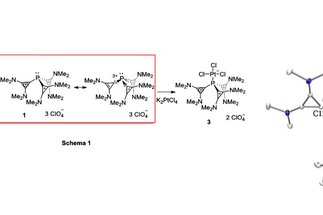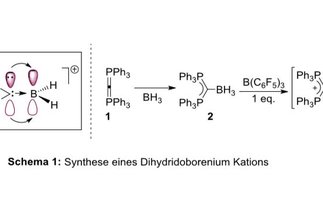Coordination Chemistry and Asymmetric Homogeneous Catalysis
Prof. Dr. Manuel Alcarazo
2008 - 2015
Manuel Alcarazo joined the University of Göttingen as Professor of Organic Chemistry in December 2015. Information on his current research is available here. The following web page documents the activities of his group at the Max-Planck-Institut für Kohlenforschung (until 2015).
Research in our group is primarily directed toward the coordination chemistry of main group element in unusual oxidation states, the design of novel “frustrated Lewis pairs” and applications thereof to homogeneous catalysis and organic synthesis.
Research Topics:
Research Reports:
- Research Report Alcarazo 2008-2010 757.48 kB
- Research Report Alcarazo 2011-2013 433.9 kB
- Research Report Alcarazo 2014-2015 600.35 kB


